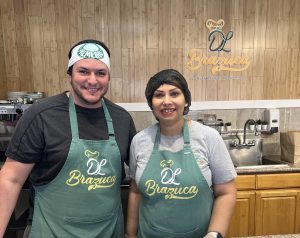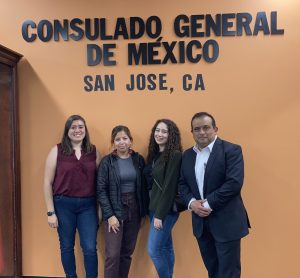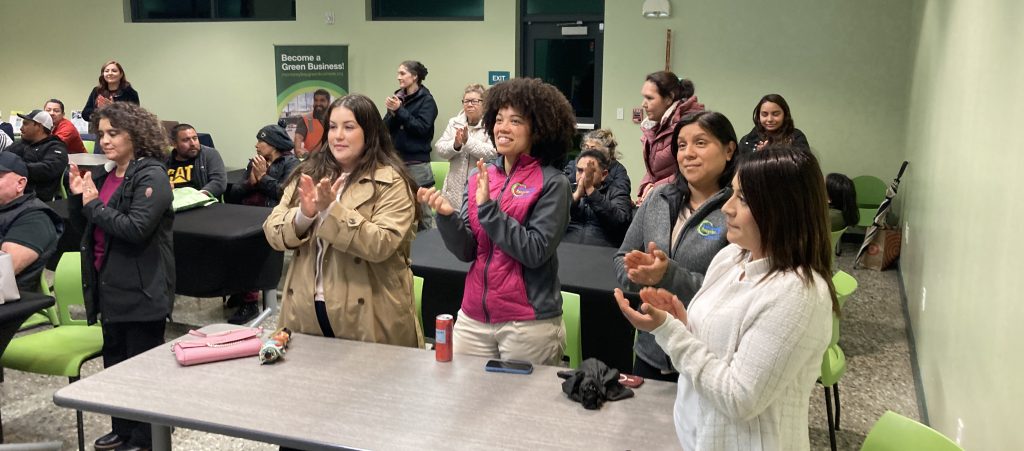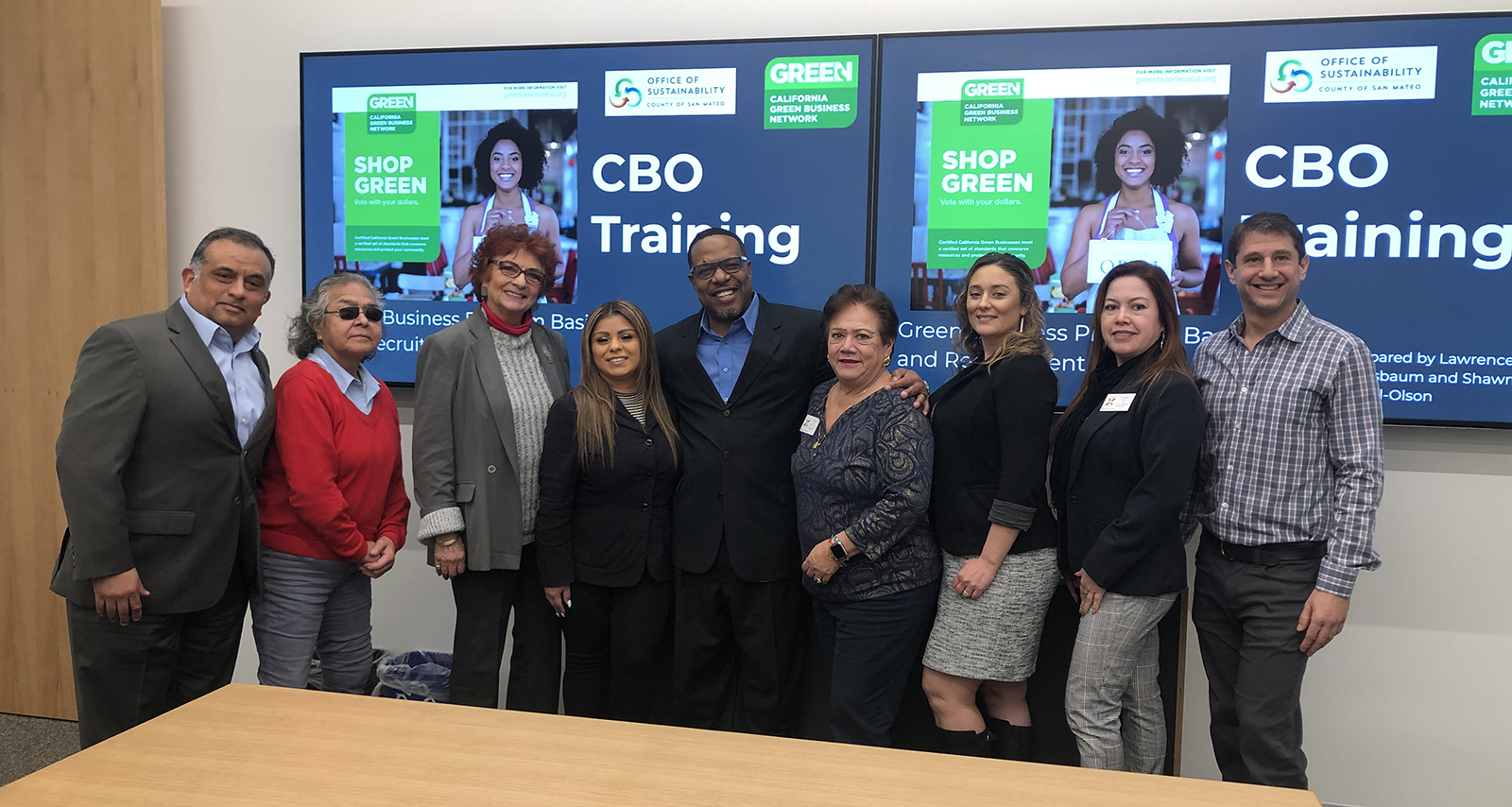
Ensuring the Green Economy is Inclusive for all Small Businesses
We actively engage small, sometimes very small, businesses from underserved regions and provide them with free resources and technical assistance. We track demographics to make sure we are delivering the Green Business advantage equitably.
Over the past decade, we pieced together several initiatives to reach businesses that needed our help the most and to ensure inclusivity. We especially want black, brown, and indigenous persons of color and LGBTQIA+ persons to see themselves thrive in our Network.
Why do we give extra attention to equity?
 The disadvantaged communities in California not only bear most of the State’s pollution, but they are also on the front lines of climate disasters such as floods, fires, and extreme weather events which impacts their profitability, viability, and resilience.
The disadvantaged communities in California not only bear most of the State’s pollution, but they are also on the front lines of climate disasters such as floods, fires, and extreme weather events which impacts their profitability, viability, and resilience.
Incentives abound for businesses to operate more sustainably in California and the US.. However, several factors prevent small businesses from taking advantage of these incentives: 1) outreach is geared toward big businesses 2) disadvantaged neighborhoods are avoided by outreach teams 3) leased spaces are overlooked and an overwhelming majority of small businesses lease their space yet still pay their utilities, and 4) many of them are owned and operated by persons of color and/or speak English as a second language. For all of these reasons, small businesses are deemed “hard to reach” and therefore avoided.
Being “hard to reach” has impacts on business in a similar way that red-lining in housing and real-estate impacted generational wealth in the 1950’s. It leaves entire segments and jurisdictions behind in programs that support cleaner, healthier buildings and lower-cost utilities. Small businesses in disadvantaged communities (DACs) are at risk of being left behind in the “green revolution”.
Specific actions and results:
In 2013, we mapped our Green Business locations and realized that we were not serving disadvantaged communities. We also recently began collecting demographic data and realized we need to better serve certain demographic communities. We identified inequities and barriers in our programming such as: cost of upgrades/green purchasing; technology gap; language and cultural gaps and trust being the biggest barrier.
Our equity efforts have resulted in the following results:
|
 |
Increased participation from businesses in disadvantaged communities by 40%.

Over 40% of funding for underserved regions and businesses.
We have achieved these results by:
- Building long-term meaningful relationships with community-based organizations while amplifying existing resources in these communities.
- Working with and funding trusted community-based partners to recruit businesses to participate in the program
- Increasing participation, access to funding, and services for sustainability and resource conservation programs.
- Identifying and directing funding toward programs and businesses that increase equity in the delivery of Green Business Program services.
- Increase knowledge and action of network members
- Develop culturally appropriate language, messaging, and materials to reach California’s diverse audiences.

What our businesses have to say:
 |
 |
 |
||
|
“Thank you so much for coming to my business and offering help. In all my years here, I’ve never had someone come from the City to explain things to me. I want to do the right thing but I need to understand and know first.” Maria Martinez, My Candy House |
“Working with someone who speaks Spanish was very helpful and above all, they used a very easy to understand vocabulary. Many times when people come to my business offering some help from the city or county, they never use words or phrases that I can understand.” Guillermo Lara, Las Chiquitas |
“Understanding all the information in Spanish has made a big difference and is a big change for me. Normally the information I receive is the misinterpretation of people who do not speak Spanish as their first language, and it is not 100% understood.” Edith Chavez, Mexical Taqueria |
For additional information, you can contact the Co-Chairs of our Equity Committee: Maria Corona and Nancy Robles
Thank you to staff members representing the following local Green Business programs for serving on the Equity Committee: Santa Monica and Culver City, Ventura County, Monterey Bay Area (Santa Cruz County, Watsonville, San Benito County), San Francisco, Contra Costa, Long Beach, City of Glendale, Fresno & Kern County, City of Los Angeles and Santa Clara County
